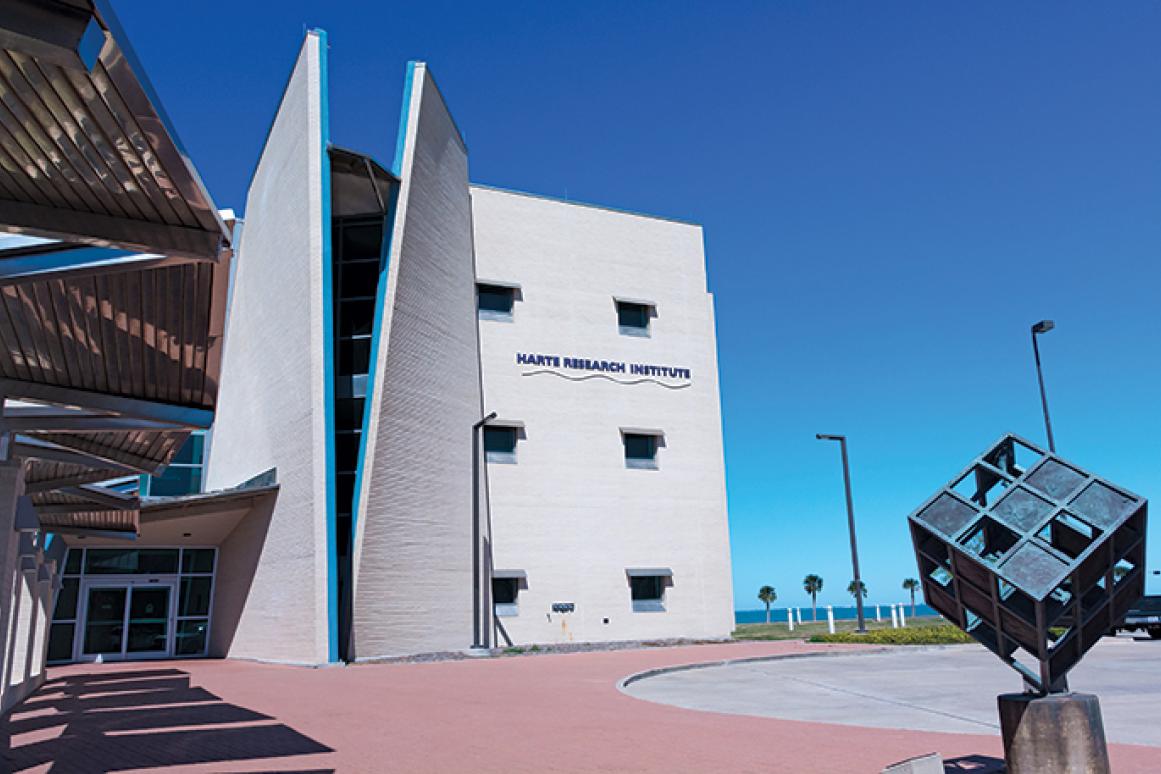Student-Organized “Leadership in the Sciences” Workshop Prepares HRI’s Future Gulf Leaders

CORPUS CHRISTI — Graduate students at the Harte Research Institute for Gulf of Mexico Studies (HRI) at Texas A&M University-Corpus Christi spent their summer learning new skills to serve as better leaders and mentors in science.
The students have been meeting virtually throughout the summer for the student-organized “Leadership in the Sciences” Workshop, a series of trainings with Dr. Roberta Attanasio, an associate professor of biology at Georgia State University who has spoken and written widely on topics of diversity, inclusion, and emotional intelligence in leadership. Sixteen graduate students, about half of HRI’s student body, attended the workshop, which includes four training sessions and two follow up sessions.
Monisha Sugla, a graduate research assistant and NOAA Center for Coastal and Marine Ecosystems Scholar in the HRI Coastal Conservation and Restoration Lab, is one of the workshop organizers. She said she approached her mentor, HRI Endowed Chair Dr. Jennifer Pollack, with the idea of having a diversity workshop for students. But after polling other students, they decided to expand the idea to include other leadership and mentorship topics.
Lexie Neffinger, a graduate research assistant and Crutchfield Scholar in the Coastal Conservation and Restoration Lab, worked with Sugla to co-organize the workshop. It was Pollack who connected the students with Attanasio, who she’d discovered while exploring the idea of conducting a women’s leadership workshop and diversity workshop for employees at HRI. The students chose her to lead the training after she gave a mini version of this workshop at the campus’ Marine Science Graduate Student Organization Symposium in April.
“(Attanasio) talks a lot about emotional intelligence, which I think is really important in this new generation of leaders. They are really passionate about the people they’re working with and aware of their own biases,” Neffinger said. “When you’re coming into your own power as a graduate student, you can be a real leader if you’re willing to develop your style based on how you work and who you’re working with.”
The workshop is organized in four modules, with one completed every other week. The topics were selected to promote self-awareness, self-efficacy, interpersonal skills, inclusive environments, resilience and adaptability, Attanasio said.
Some examples of the topics discussed include personal values; emotional intelligence; the impostor phenomenon, which involves self-doubt and feelings like a fraud; biases; microaggression; the importance of mindfulness practice; developing a “scientist identity”; the entrepreneurial mindset; and different aspects of leadership.
“Thanks to the workshop, I’m getting to know these students, and I’m very excited about it,” Attanasio said. “They’re exceptional budding leaders, with impressive backgrounds and life experiences of all types. It’s also clear to me that the HRI provides a nurturing environment that promotes growth, but it can be important to put everything into perspective.”
Attanasio said we live in what she calls a “VUCA” world — one characterized by volatility, uncertainty, complexity and ambiguity. The academic environment is highly structured, and it provides a certain degree of stability but it still can’t escape challenges such as the COVID-19 pandemic, which has shown us how change can be very rapid and unpredictable.
Building inclusive and diverse groups that can help expand ideas and innovation, and can increase students’ resilience and adaptability in a chaotic environment. These leadership skills will not only make them better scientists, prepared to cooperate to tackle complex problems, but can help them to succeed across all disciplines.
“These students are dedicated and committed to our environment and our world, they have chosen their focus and path for contributing to science, society and a more sustainable planet,” Attanasio said. “The workshop is an introduction on how to align personal why, what and how, and design a leadership journey around the why, what and how — so it’s necessary to recognize that leadership is a journey, always work in progress.”
Sugla said the group plans to continue to host trainings in the future, and hopefully to expand the workshops to diversify attendance, and to include more topics including diversity issues like biases, racism, microaggressions and hierarchal and peer problems.
